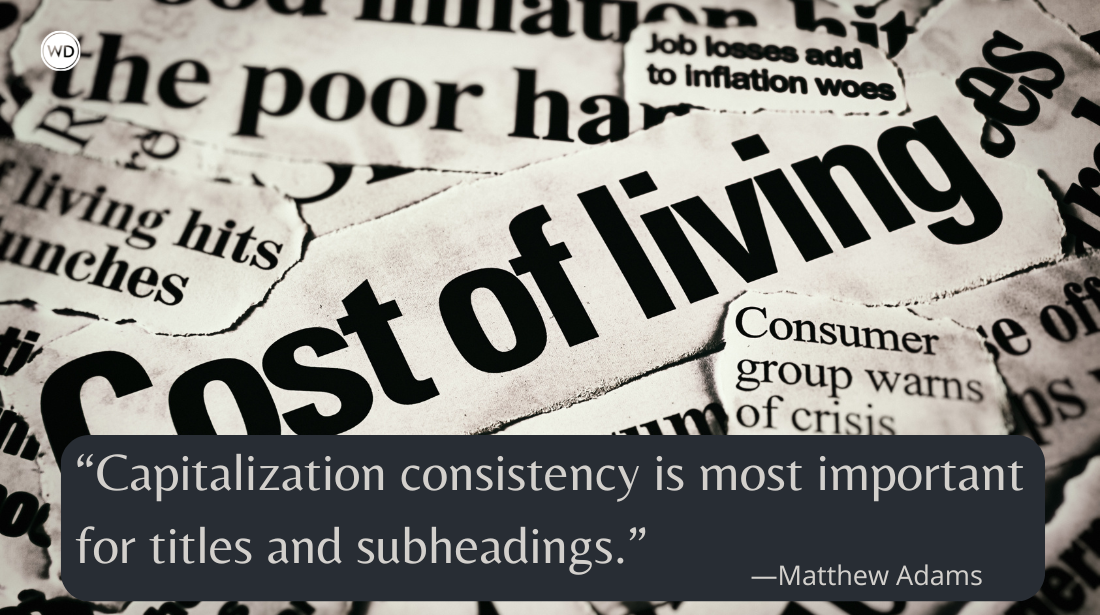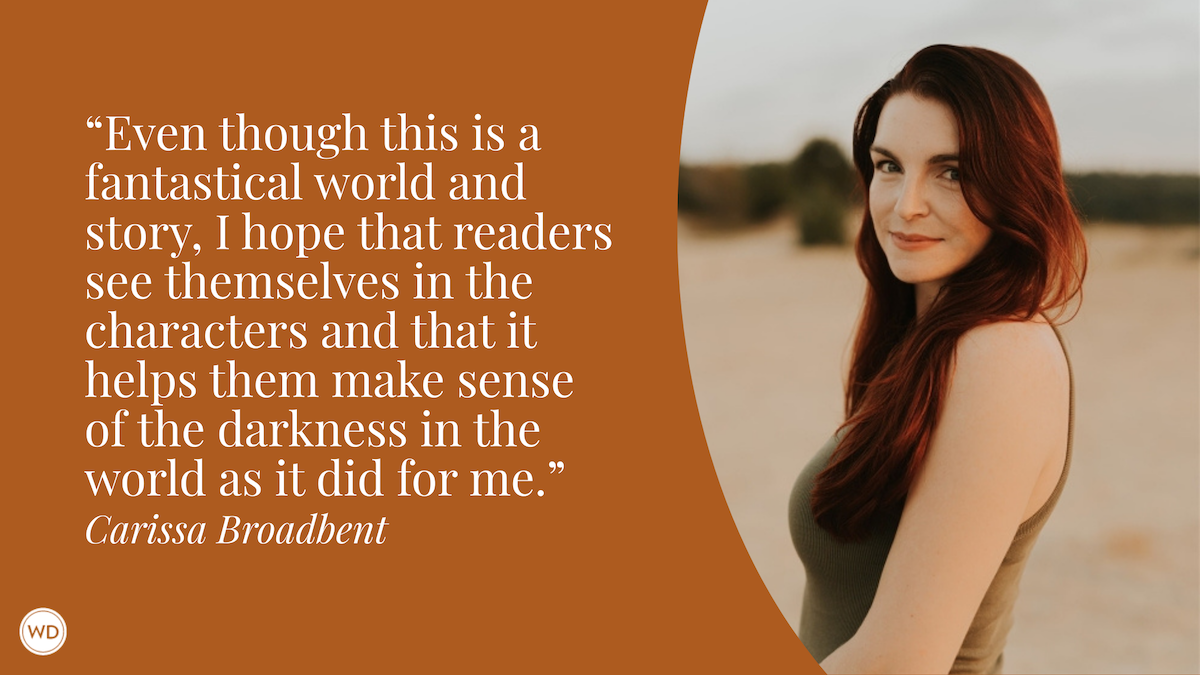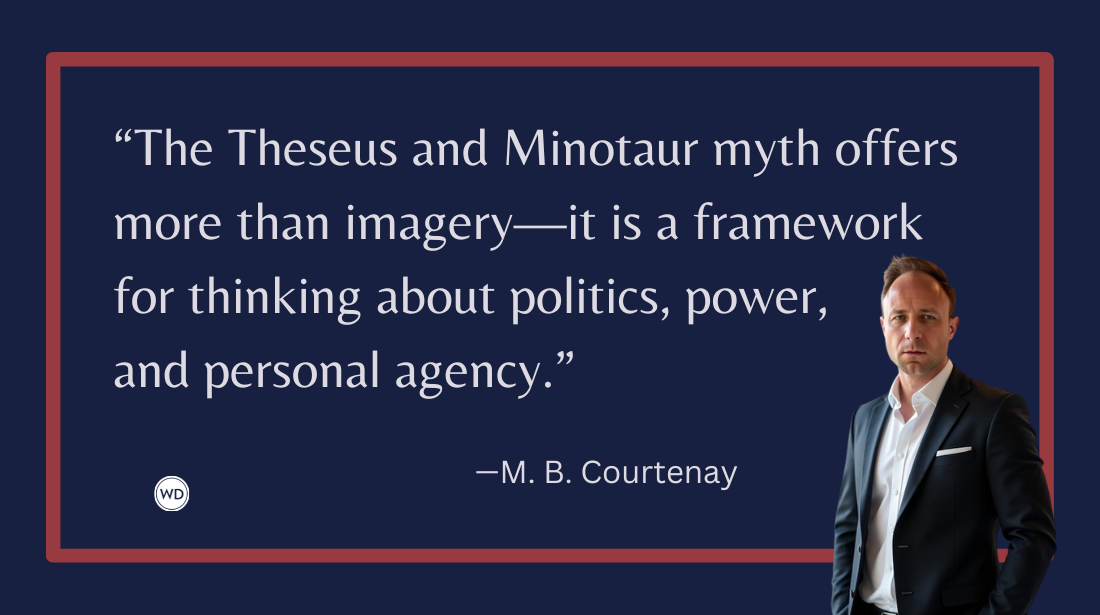How to Write a Great Fantasy Novel
Author Claire M. Andrews breaks down what draws us to fantasy fiction and shares her tips on how to write a great fantasy novel.
Imagine the first fantasy movie that took your breath away, or the first fantasy novel that left you with a terrible book hangover that not even previous favorites could cure. What was it about these masterpieces that left you aching for more? Was it the ageless characters? Could it have been the masterful setting, or thrilling plot? Or, imagine this, could it have been all of the above?
In this sense, writing fantasy is like putting together a puzzle, and you’re never quite satisfied with the final product unless all the pieces fit together. Jot all your favorite things down and follow along as I share the most important aspects I’ve found when writing fantasy.
Building The World
Setting, in fantasy, is oftentimes just as important as the characters, which is why crafting a world should usually be the first very step. Setting can influence both the plot and the character. How you’re behaving and feeling can sometimes boil down to where exactly you’re at.
Draw a map—even if you’re not a very good artist—or pull up a map of where exactly your characters are. Flesh it out, pretend it’s your masterpiece; discover for yourself what makes your world unique and intriguing. Look at Game of Thrones, which benefitted greatly from the map that rolled during the opening credits, constantly changing, and the map in the front of the books, that I would flip to constantly while reading.
Getting It Down
Keeping track of everything can start to get really, really messy, so the next thing you should do is get everything down. After crafting the world, your mind will be brimming with ideas just begging to get put out on paper. For some, it’s jotting down a list, or a story map, and for some it is just getting that first draft out of yourself.
It’s hard, especially for perfectionists like myself, to write that draft without constantly going back to nitpick and edit it, but it has to be done or you’ll spend more time drafting and rewriting than you will anything else. Once you’ve got the draft down, like laying out all the pieces of the puzzle, so to speak, then you can really start putting together your fantasy masterpiece.
Creating Characters
The next aspect of creating a fantasy brimming with life are the characters. A diverse world requires a diverse cast. Think about what you love and hate about people, what confounds you about a person, and your favorite book characters. Make a list of it all and make sure to show it, through their actions and words.
Take, for example, The Lord of the Rings, one of the most celebrated and famous fantasy stories (aside from the Iliad, but I might be a bit biased). Characters don’t wax poetic about how brave the others are, or strong, or foolish and brave. They show this, through actions and what they themselves say, the way they treat each other and themselves.
Fleshing It All Out
These are the bones of your manuscript, the borders of your puzzle, and the highlights of your painting. The rest is just fleshing it out, filling the gaps of your plot, and rearranging your scenes until it all finally clicks together and the puzzle reveals itself. Once you’ve gotten that draft down on paper, these are what will draw in your readers—and yourself—and fall in love with it.
I say yourself because it’s important to remember that this is only the first draft, and you will revise this beast of a book until you’re struggling to remember why you’re putting yourself through this mental marathon. But, once you’re holding that final copy in your hands, it will all be worth it.
IndieBound | Bookshop | Amazon
[WD uses affiliate links.]
5 Tips for Writing a Fantasy Novel
To close out, I’m going to leave you with my top five tips for writing a fantasy novel:
- Read a lot, and read widely. Don’t just reread your favorite fantasy authors, no matter how brilliant they are. All are different, and often many fall into the same patterns with sentence and story structure. I also always recommend reading outside of your writing genre because it adds to your own voice.
- Write a short story. When I first drafted Daughter of Sparta, I built upon the world and characters already crafted in a short story about them I created many years before. You obviously don’t have to wait as long as I did before trying to get your story published, but creating that short story gives yourself just enough hints to the world, characters, and fantastical elements of your story that will illuminate the paths before you when drafting your full-fledged novel.
- Pantsing vs. planning? Pantsing aka “writing by the seat of your pants” really does work for some, whereas working off a detailed outline works more for others. I’ve found that outlines really work well for keeping track of details and not leaving any important plot points in the dust, as well as helping with revisions, but I’ve also found that writing as your characters take you can sometimes lead to a more authentic story and world. Find what works best for you, and don’t be afraid to blend the two techniques. Perhaps draft a few chapters at a time, bullet-pointing the most important elements of each chapter before actually putting the plot to paper.
- Make rules. Jot down the rules of your fantasy world. Either in an Excel spreadsheet, a half-completed journal, or even on scraps of paper you find around your home. Whichever way, it is essential to know and understand these rules for yourself, because they become the tenets of your world, and will save yourself a lot of headaches when revising later on.
- Find your writing place. Not just the setting of the novel is important. So is where you make your craft your own. Some people thrive on silence, others need a bit of white noise behind them. You’ll often find that your best writing days tend to be wherever you are the most comfortable. I personally need either music (a writing playlist is KEY for me) or a TV show with an incredible score.
But, whatever you do, make sure to enjoy writing. Fantasy is such a gift to readers, a door to other worlds and an escape from the mundane pressures of this life we lead. Find your joy in writing, and make sure you lace that throughout your story so your readers can share your joy.
Claire M. Andrews was raised in both Alaska and Scotland, but currently lives in Vermont. When not writing, she can usually be found outside swimming, skiing, or hiking across the state’s famous green mountains. She is the author of Daughter of Sparta and Blood of Troy, and can be found on Instagram and Twitter at @cmandrewslit.









